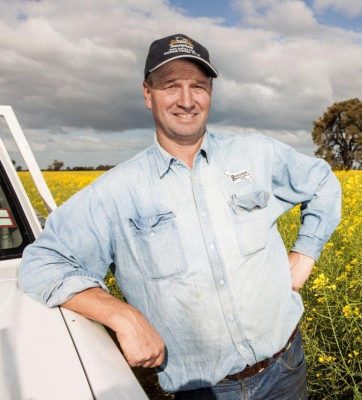
AUSTRALIAN firm Shine Lawyers has announced it has launched an investigation into a potential class action concerning the herbicide paraquat and its alleged link to Parkinson’s disease.
Shine Lawyers has called for expressions of interest from people who were “exposed to the toxic herbicide paraquat” and “have since been diagnosed with Parkinson’s disease or have experienced Parkinson’s symptoms”, or people representing a deceased person who fits these criteria.
Grain Producers Australia says it will keep a close watch on developments and has called for any discussion over a possible link between paraquat and Parkinson’s disease to be grounded in scientific data and evidence.
The announcement comes as Syngenta enters an undisclosed settlement agreement with a large number of litigants in a United States action who claimed their or a loved ones’ Parkinson’s disease was caused by exposure to paraquat.
No claims of the link between Parkinson’s disease and paraquat have been tested in court in the US and currently there are almost 6000 cases pending in multi-district litigation across federal courts throughout the US.
There is also no guarantee that a class action will be pursued by Shine Lawyers in the Australian courts.
Shine Layers joint head of class actions Craig Allsopp said the company’s investigation was “guided by legal developments in the US which indicate a connection between the herbicide and Parkinson’s diagnoses”.
“Shine Lawyers is exploring the possibility of a class action on behalf of potentially thousands of individuals who have been diagnosed with Parkinson’s disease following exposure to paraquat,” Mr Allsopp said.
“There are more than 150,000 people living with Parkinson’s in Australia.
“People who have been diagnosed with Parkinson’s may have been exposed to paraquat without even knowing it.
“Anyone working on farms or farm equipment, spraying paraquat, or living near farms and wineries where paraquat has been used, may have been exposed to the herbicide.”
Mr Allsopp said at this stage it was anticipated that any class action would “be against the manufacturers of paraquat, not the APVMA or the government”.
Importance of data, science
GPA RD&E spokesperson and southern grower director Andrew Weidemann said GPA supported “Australia’s strong, independent, scientific, evidence-based regulatory regime” to balance the needs of farmers while protecting human health and the environment.
“Whilst natural scepticism may exist about the motivations of Shine Lawyers, and the potential needs for parent entity and ASX-listed company Shine Justice to generate revenue for shareholders, GPA will continue monitoring these matters very closely to protect the interests of growers and industry,” Mr Weidemann said.
“GPA remains absolutely concerned for anyone living with Parkinson’s disease, and their families, and for anyone who has ever been affected by this disease, in any way.
“However, we also need to be extremely wary and cautious of misinformation, especially where emotions may get ahead of real evidence and salient facts, to possibly undermine credible legal processes and standards, by potentially subverting due process.”

Andrew Weidemann
Mr Wiedemann highlighted that there was “no established causal link between paraquat and Parkinson’s disease” which was confirmed by three OECD-nation regulators in the past four years.
US court action
In a statement, Shine Lawyers referenced legal action under way in the US, citing almost 6000 cases pending in multi-district litigation across federal courts throughout the country.
In April, one of these cases being heard in the US Court of Appeals for the Seventh Circuit, which includes parts of Illinois, Indiana and Wisconsin, reached a potential conclusion with paraquat manufacturer Syngenta, entering into an agreement aimed at settling with the claimants.
The agreement is yet to be finalised, with no details released on the settlement amount or number of cases involved.
However, The Guardian US has reported the move could settle the bulk of the cases currently filed across the country.
In a statement published by The Guardian, Syngenta said that there was “no merit to the claims” but that “litigation can be distracting and costly”.
The company said that by settling the cases it “in no way implies that paraquat causes Parkinson’s disease or that Syngenta has done anything wrong”.
In a statement published to its website, Syngenta said that more than 1500 claimants seeking to find a causal link between paraquat and Parkinson’s have had their cases dismissed in US Courts as of January.
GPA chief executive Colin Bettles said GPA was “aware of the differences between Australian courts, and those in the US system”.
He pointed to Federal Court of Australia’s decision to dismiss a class action against Monsanto/ Bayer in July last year, which sought to make a connection between Roundup exposure and non-Hodgkin lymphoma.
Mr Bettles said the GPA “recognises precedents set by other cases recently, where insufficient evidence (of product safety) ultimately led to certain claims being dismissed here, while acknowledging scientific testing and rigour, in ruling”.
The APVMA is currently reviewing the use of paraquat and diquat, with a final regulatory decision expected towards the end of the year.

HAVE YOUR SAY